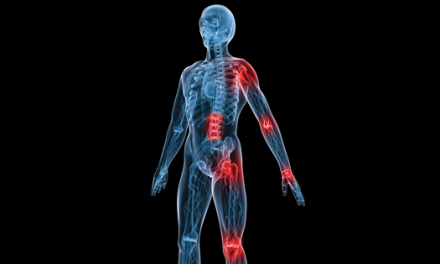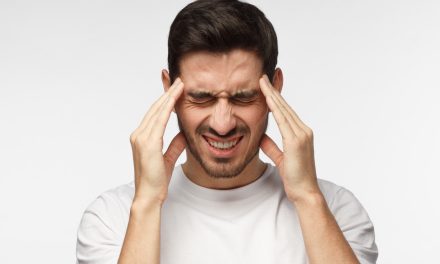
Today, I wanted to provide a quick run down of some common complaints that I hear as a Rheumatologists and the most common medical conditions that can produce them. Hopefully, in some instances, I will also provide you some clinical clues as to what might be the underlying issue and what would be best to discuss with your health care providers.
So…..let’s talk about some common complaints
1. My joints hurt…what’s causing that?
A. Inflammatory Arthritis / Autoimmune rheumatic condition
Symptoms:
joint pain – typically affects many joints at the same time
joint swelling (joint can be red and/or warm)
stiffness of the joints – especially in the morning that typically lasts longer than 15 minutes
fatigue / tired
joint pain and stiffness improve with activity and movement, low grade temperature
weight loss, rash, poor sleep
The inflammatory arthritic conditions and auto-immune disorders that create joint pain and stiffness are conditions in which our own immune system is turning on ourselves. Essentially, what is happening is our bodies are generating the ‘inflammatory response’ to fight our own healthy cells and tissues.
These conditions will need to be addressed as the ‘inflammatory response’ is destructive and can cause erosions of our cartilage and bone, joint deformities, and abnormal organ function.
Examples:
Rheumatoid Arthritis
Lupus
MCTD
UCTD
Sjogren’s
Scleroderma
Gout / Pseudogout
Treatment: Medications that suppress the immune response such as steroids, Methotrexate, and Biologics to name a few.
B. Non-inflammatory arthritis / Mechanical arthritis
Symptoms:
joint pain that moves around – typically one side is worse than the other
joint pain that is worse with prolonged activity and better with rest
joints are typically swollen, red, or warm
morning stiffness or stiffness after prolonged sitting that lasts only moments (typically less than 10 to15 minutes)
These are conditions in which our joint pain is created from loss of cartilage in our joint space, spurs (bony growth), or misalignment or damage.
This is the so called “wear and tear’ arthritis.
Causes: Genetics, Overuse, Trauma, Excess weight, Tobacco use
Examples:
Osteoarthritis
Degenerative Disc Disease
Spondylosis
Scoliosis
Sprains
Torn cartilage (cushion)
Bursitis
Treatment:
Anti-Inflammatory Diet
Routine exercise regimen
Physical therapy
Acupuncture
Anti-inflammatories
Tylenol
Muscle relaxers
Epidural steroid injections / Nerve blocks
Joint replacement surgery
Unfortunately at this time, stem cell and PRP has not yet been shown to replace or prevent the loss of cartilage.
C. Hypothyroidism / Hyperthyroid
Hypothyroid is a much more common cause of joint pain and muscle pain than hyperthyroid.
Symptoms (Hypothyroidism):
fatigue
dry skin
constipation
intolerant to cold
muscle weakness
hoarseness
weight gain
D. Infections
Many infections can cause joint pain and muscle pain.
Staph – most common bacteria
The most common viruses that produce joint pain include:
Hepatitis B and C, HIV, Parvo B19, Epstein Barr, CMV, Influenza
Lyme disease
Salmonella food poisoning
Gonorrhea / Chlamydia
Symptoms:
The associated symptoms of infection are variable dependent upon the underlying infection.
Treatment: Treat the underlying infection and help control joint pain with the use of anti-inflammatories and Tylenol.
An infected joint (i.e. septic joint) is a serious condition and is usually red, warm and painful and only affects only one joint at a given time (Gout typically presents the same meaning one joint flaring at a given time).
Infection in a joint itself is a serious condition and can cause significant damage to the cartilage and the bone and requires prolonged IV antibiotics.
E. Medications
Medications can occasionally cause joint pain, but it is not common.
Medications that have known potential risk include:
Actonel Flovent
Effexor XR Zyprexa
Premarin Plavix
Clonidine Lyrica
Carvedilol Mobic
Crestor / Lipitor / Lovastatin
Steroid (Prednisone/ prednisolone)……steroids are worth mentioning further
Prednisone or methylprednisolone use of typically greater than 3 months can increase your risk of a condition called avascular necrosis. In essence, although the exact mechanism is not known, it is believed to result from decreased blood flow to the bone causing the bone cells to die. Typically affects the shoulder, hip, or knee.
Therefore, if possible, it is best if you can control your inflammatory arthritis without the long term use of prednisone (i.e. steroid). If steroids are required, lowest effective dose is best.
F. Stress, depression, anxiety (i.e. discontentment)
2. My hands or arms, feet or legs are numb, tingling, weak, they feel like they are asleep…what’s causing that?
Typically, anytime we are experiencing numbness, tingling, pin and needle sensation, walking on pebbles, or ants crawling on us, the underlying issue is abnormal nerve function. This is called ‘neuropathy’.
There are several causes of neuropathy.
Symptoms:
decreased sensation of touch
muscle weakness
unsteady when walking or tripping often
loss of muscle mass
Many things can cause abnormal nerve function. Let’s cover the most common.
A. Peripheral Neuropathy – abnormal nerve function / causes
Typically, peripheral neuropathy will cause numbness and tingling of hands and feet.
Common causes of peripheral neuropathy:
Diabetes
RA, Lupus, Sjogren’s, etc
Thyroid
Vitamin deficiency (especially Vitamin B)
Alcohol
Medications
Vascular disease
Vascular disease is most common from clogged arteries. This is called peripheral vascular disease. It is important for this to be evaluated and treated because if our cells and tissues do not have blood supply for an extended period of time, the cells, and subsequent tissue dies. Subsequent complications of that occurring can be infection / gangrene, infection of the bone, and amputation.
Less common causes of neuropathy:
Bone marrow processes
Cancers / Tumors
Vasculitis
Vasculitis is inflammation of our blood vessels and is considered and autoimmune issue. There are many different types of vasculitis. But, all of them can cause neuropathy and create other issues such as stroke, heart attack, vision loss, lung, kidney and liver dysfunction, rash, fever.
B. Carpel Tunnel Syndrome (CTS)
CTS is caused from an inflamed or pinched median nerve at the wrists.
CTS syndrome can give us numbness, tingling, and typically affects the thumb, the index finger and the middle finger more than the other fingers. It can be a common cause of hand weakness.
Think of CTS if the symptoms awaken you from sleep, occurs with driving or doing hair in the morning or being on the computer.
Treatment options: Carpel tunnel bracing, Injection, Surgery
C. Ulnar neuropathy
Ulnar neuropathy is caused from a pinched ulnar nerve at elbow. It is usually from resting an elbow on hard surfaces for prolonged period of times.
Typically the numbness and tingling affects the pinky and the second to last finger more than the other fingers.
Treatment options: Don’t rest elbows on armchairs, Elbow pads, Surgery
D. Pinched nerve in the neck / back
Pinched nerves in our spinal cord can cause numbness and tingling of an arm or leg as well as weakness of the affected extremity.
We can pinch one of the nerves that come off our spinal cord if we we have a herniated disk, ruptured disk, spurs (i.e. bony growths on our spine), or degenerative disc disease and arthritis of the spine.
Treatment options: Physical therapy, Acupuncture, Medications, Nerve blocks or Epidural Steroid Injection, Surgery
Unlike CTS, ulnar neuropathy, a pinched nerve from our spine typically gives us symptoms that involve the entire extremity and not just part of it. And, the symptoms start and neck or shoulder and radiate down the arm rather than up the arm.
Unlike peripheral neuropathy, a pinched nerve from our spine typically only involves one extremity and not both.
Weakness of an extremity can occur with any cause of neuropathy.
Approximately 30% of the time, a cause for nerve pain (especially peripheral neuropathy) cannot be determined.
Medications that are used and can help nerve pain (numbness, tingling) include Gabapentin, Lyrica, Cymbalta.
3. I’m always tired. I have no energy…what’s causing that?
Each of the causes listed below can produce fatigue and make us feel more tired than usual.
Autoimmune rheumatic disease (i.e. RA, Lupus, etc.)
diagnosed with exam, lab, X-ray
Congestive heart failure
diagnosed with exam, echocardiogram
Emphysema / COPD
diagnosed with chest X-ray and pulmonary function studies
Obstructive Sleep Apnea
diagnosed with sleep study
Liver / Kidney disease
diagnosed with lab, urinalysis, ultrasound, biopsy
Diabetes
diagnosed with lab
Iron deficiency and bleeding
diagnosed with lab, endoscopy
Thyroid / Parathyroid disease
diagnosed with lab, ultrasound, biopsy
Medications
Poor diet
Overweight / Obesity
Stress, Anxiety, Depression
Fibromyalgia Syndrome / Chronic Fatigue Syndrome
4. My muscle hurt and feel achy…what’s causing that?
Inflammatory arthritis / Autoimmune rheumatic conditions
The most common of these that can produce muscle pain include:
Polymyalgia Rheumatica (PMR)
Mixed Connective Tissue Disease
Lupus
Myositis (inflammation of the muscles), Vasculitis
Vascular disease
Neuropathy
Emphysema / COPD / Sleep Apnea / Heart Failure
Infections
Medications, such as….
Statin meds for cholesterol
Diuretics / water pills
Aricept for Alzheimer’s
Prostigmine for Myastenia Gravis
Nifedipine for blood pressure
Evista, Fosomax, Actonel, Boniva for thin bones
Brethine, Proventil, Ventolin for asthma
Vitamin and Mineral Deficiencies, such as…
Vitamin D3, Vitamin E
Calcium, Magnesium, Potassium
Omega 3 Fatty Acids
Thyroid / Parathyroid disease
Overuse of muscles / Underuse of muscles
Poor diet
Stress, Anxiety, Depression
Fibromyalgia Syndrome
5. I don’t sleep well…what’s causing that?
Common conditions make good sleep difficulty include:
Nasal / Sinus / Allergies
Asthma / Emphysema / COPD
Obstructive Sleep Apnea
Heartburn / Reflux
Arthritis (Inflammatory and Non-inflammatory)
Hyperthyroidism
Restless Leg Syndrome
Parkinson’s
Medications
steroids
thyroid medications
birth control pills
antihistamines and allergy medications
some blood pressure / heart disease medications
anti-depressants
weight loss medications
Caffeine / High sugar diet
Stress, Anxiety, Depression
Fact is, rarely, ok, VERY rarely is ONE problem (or abnormality) the sole issue for the complaints we are experiencing.
So, I encourage you to look through the list and see what you think.
The next questions that we have to ask ourselves is a two part question.
1. What are my health care providers doing to diagnose and improve these conditions?
2. What am I doing to improve these conditions?
Remember, the more content we are, the healthier our choices and the healthier our choices, the more content we will be.
It’s hard to be healthy if unhappy and hard to be happy if unhealthy.
Now, sometimes we just ‘get stuff’, but, choices do matter.
Today and everyday, live your value one choice at a time.
Dr.D
#LiveYourValue
#LYV
#ActToImpact









